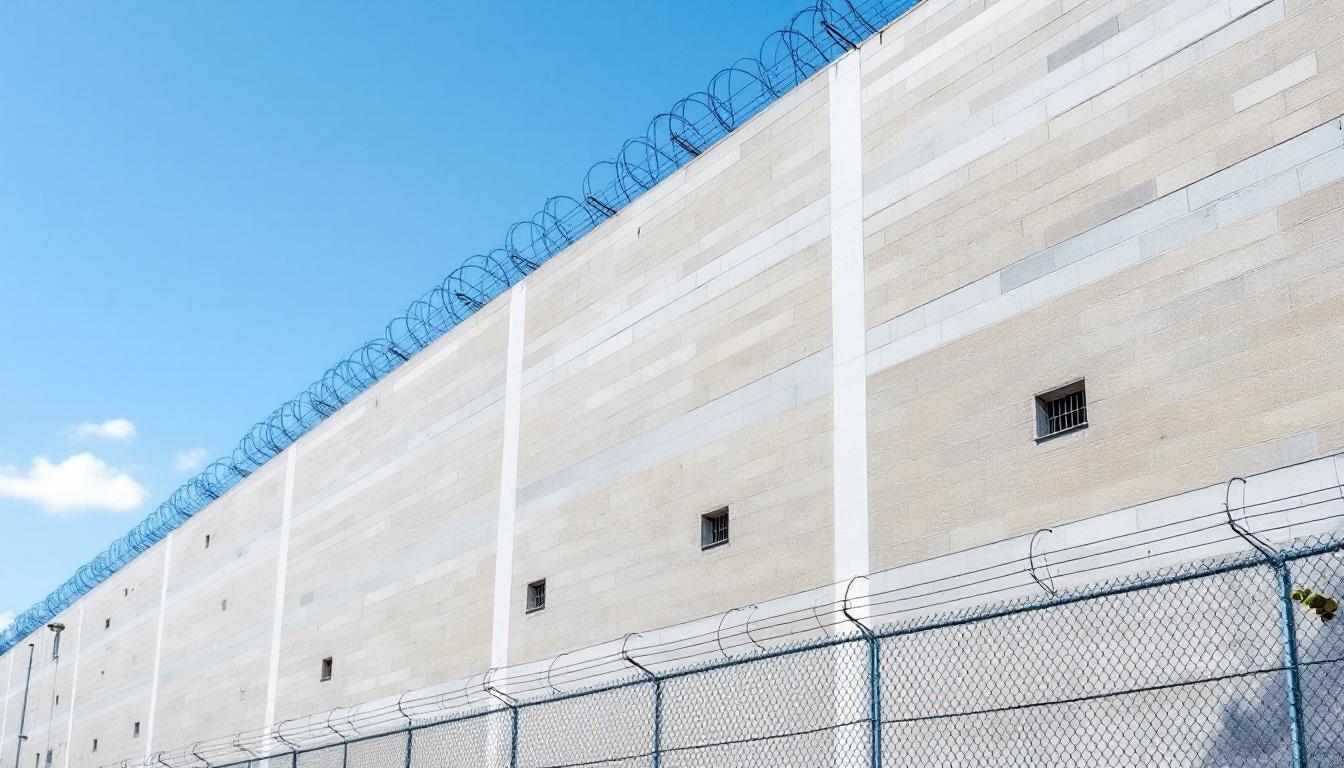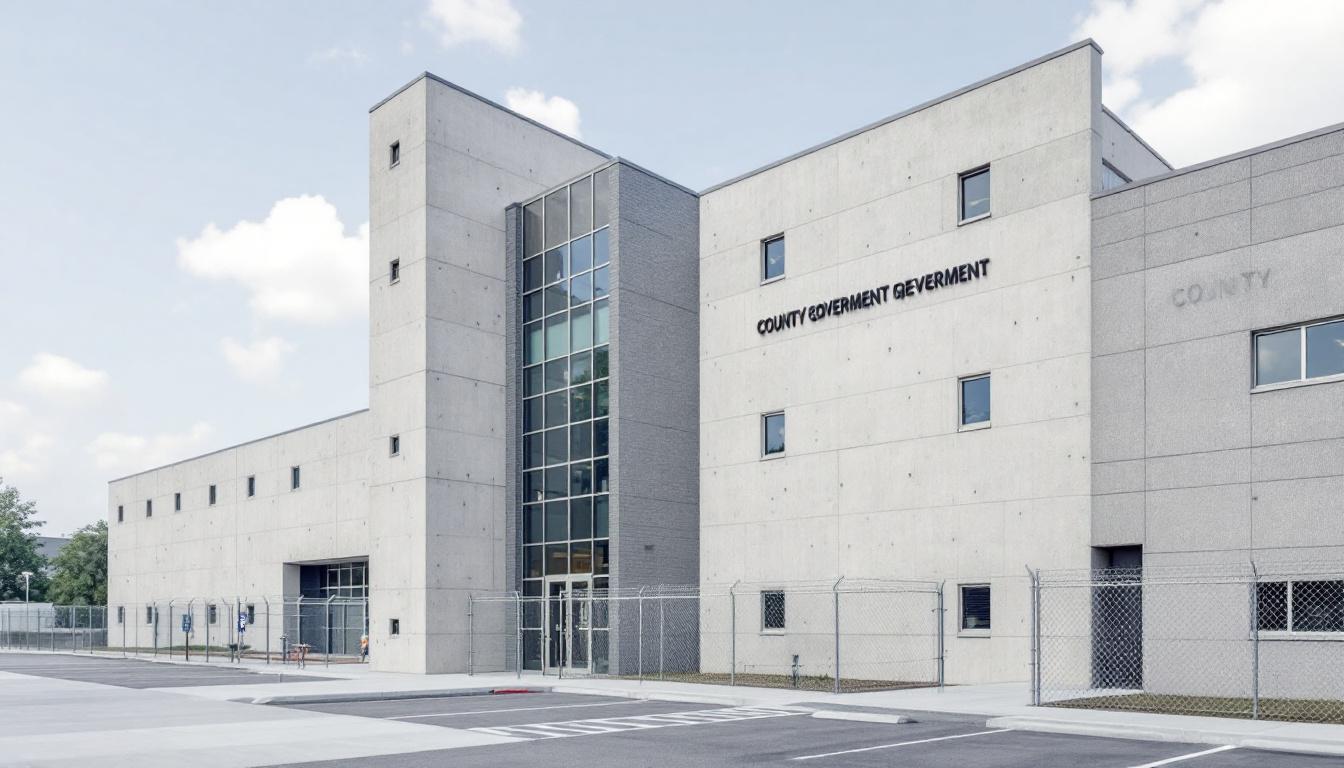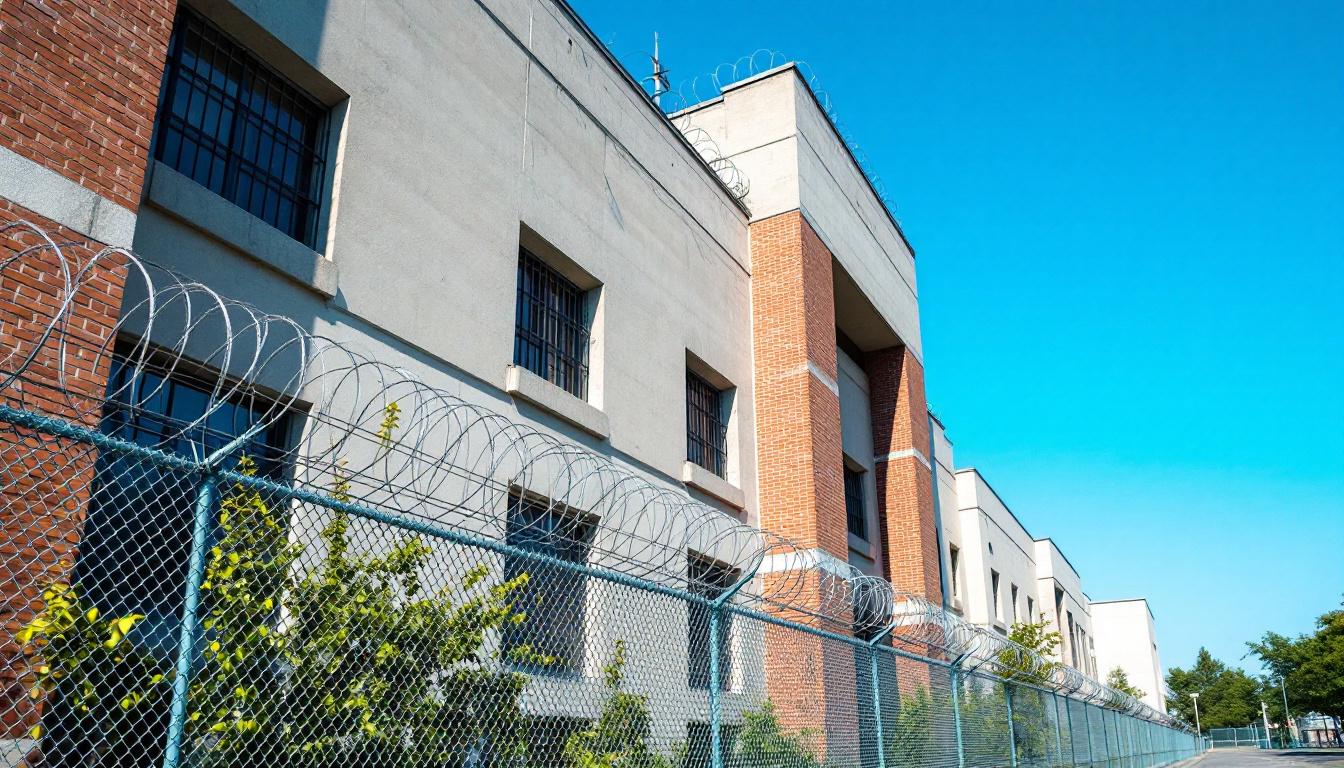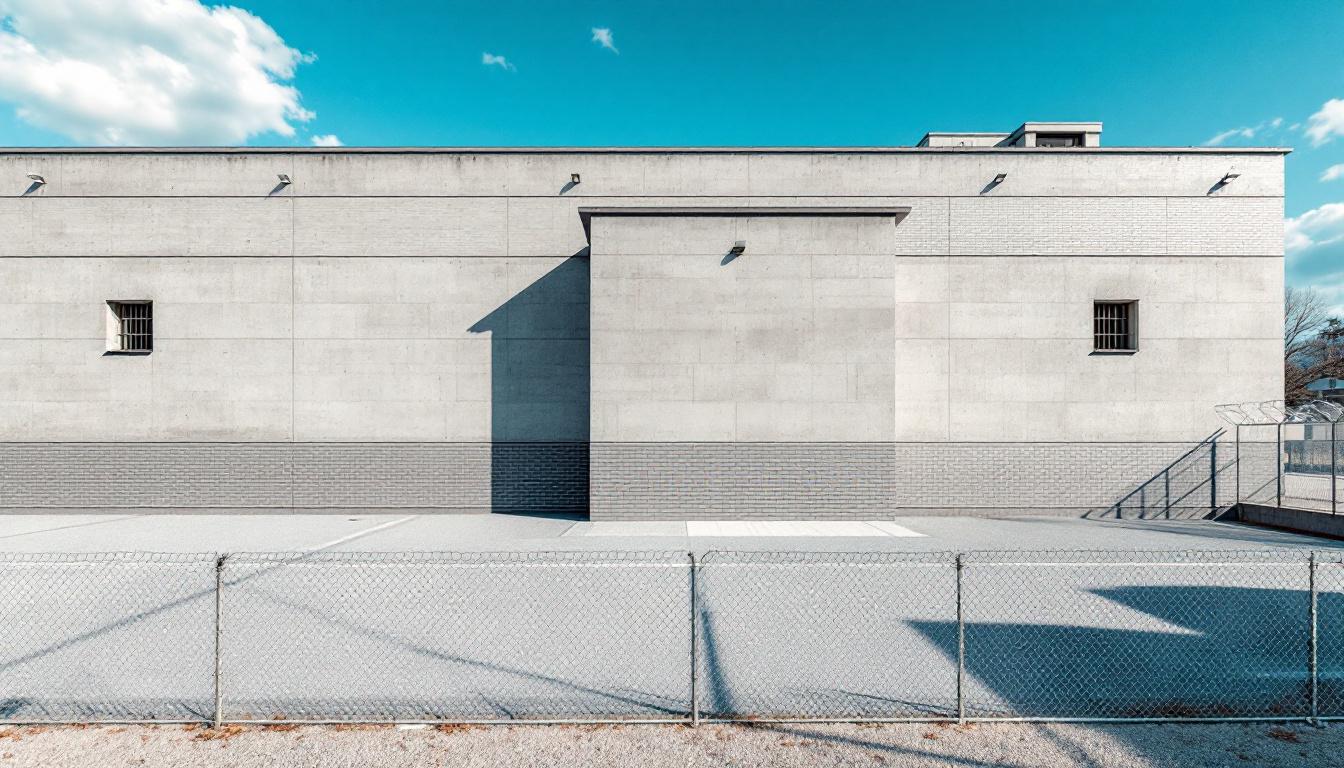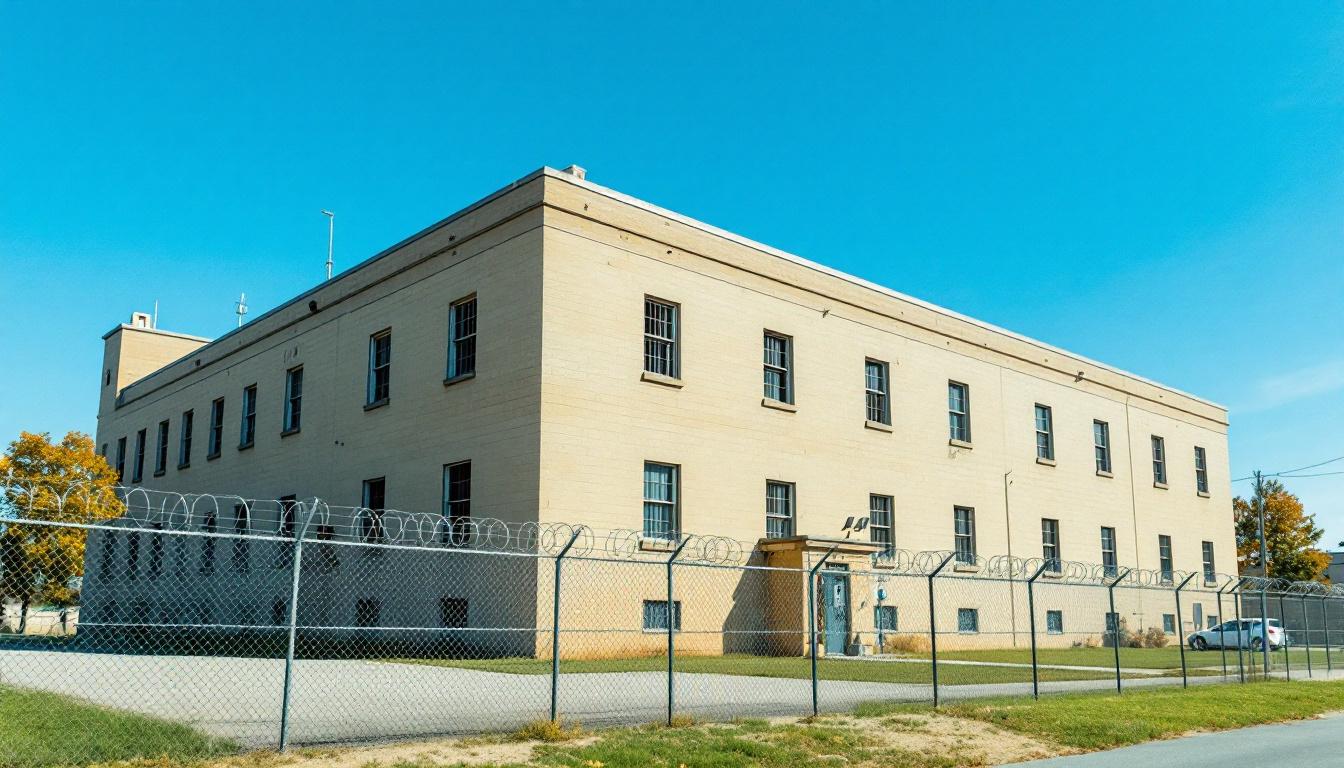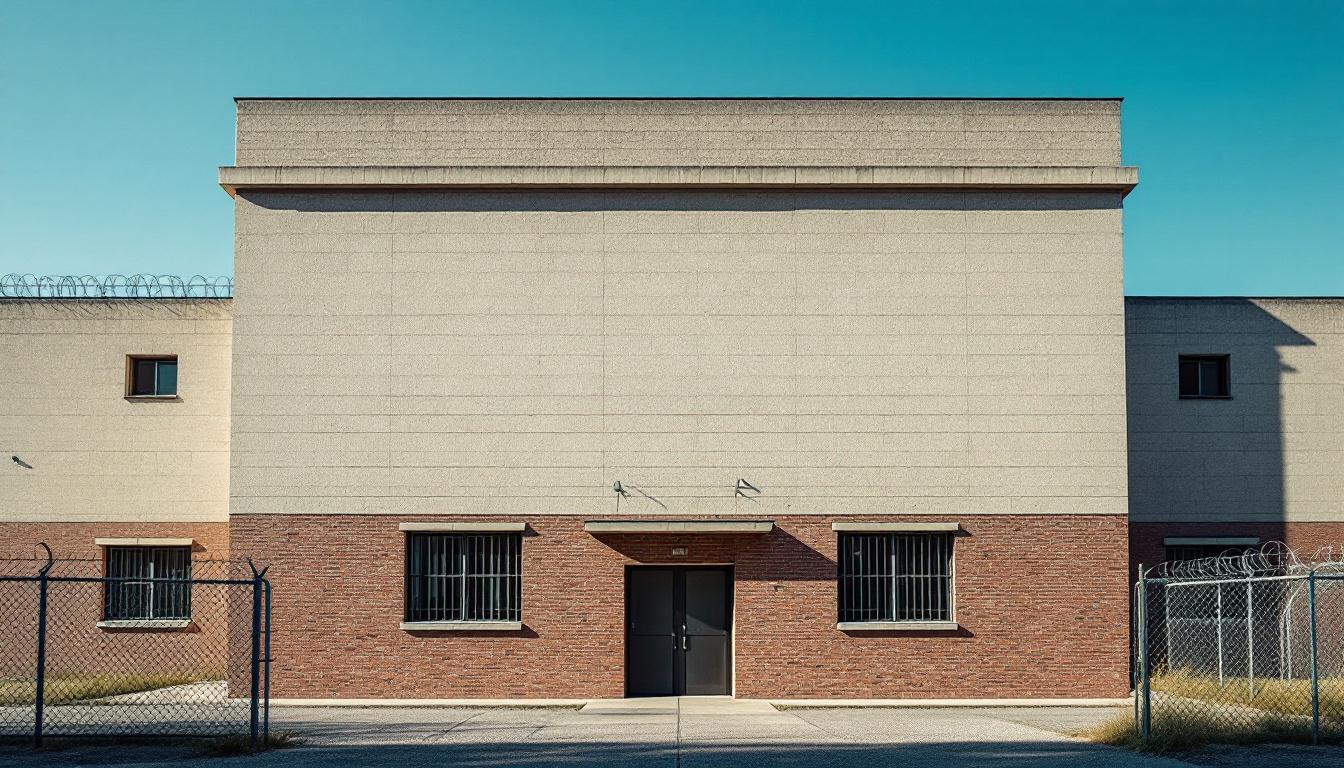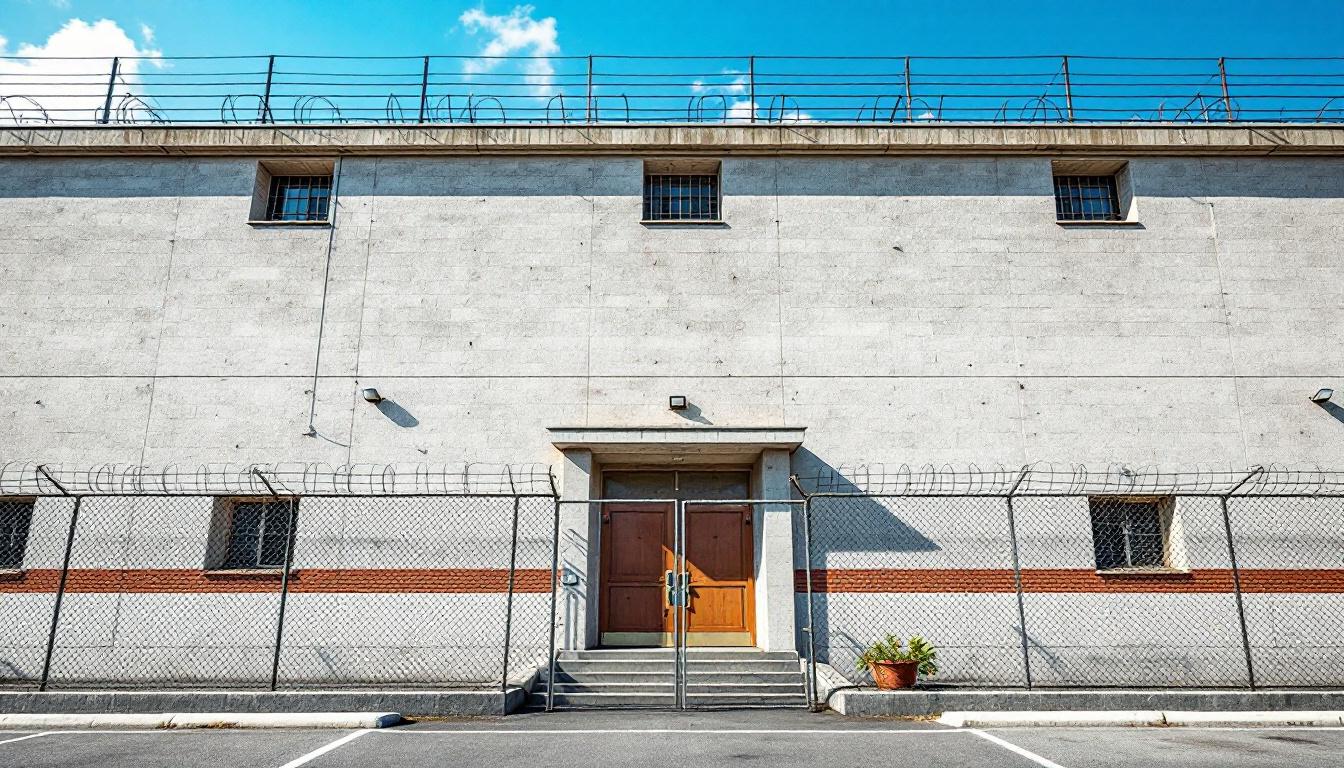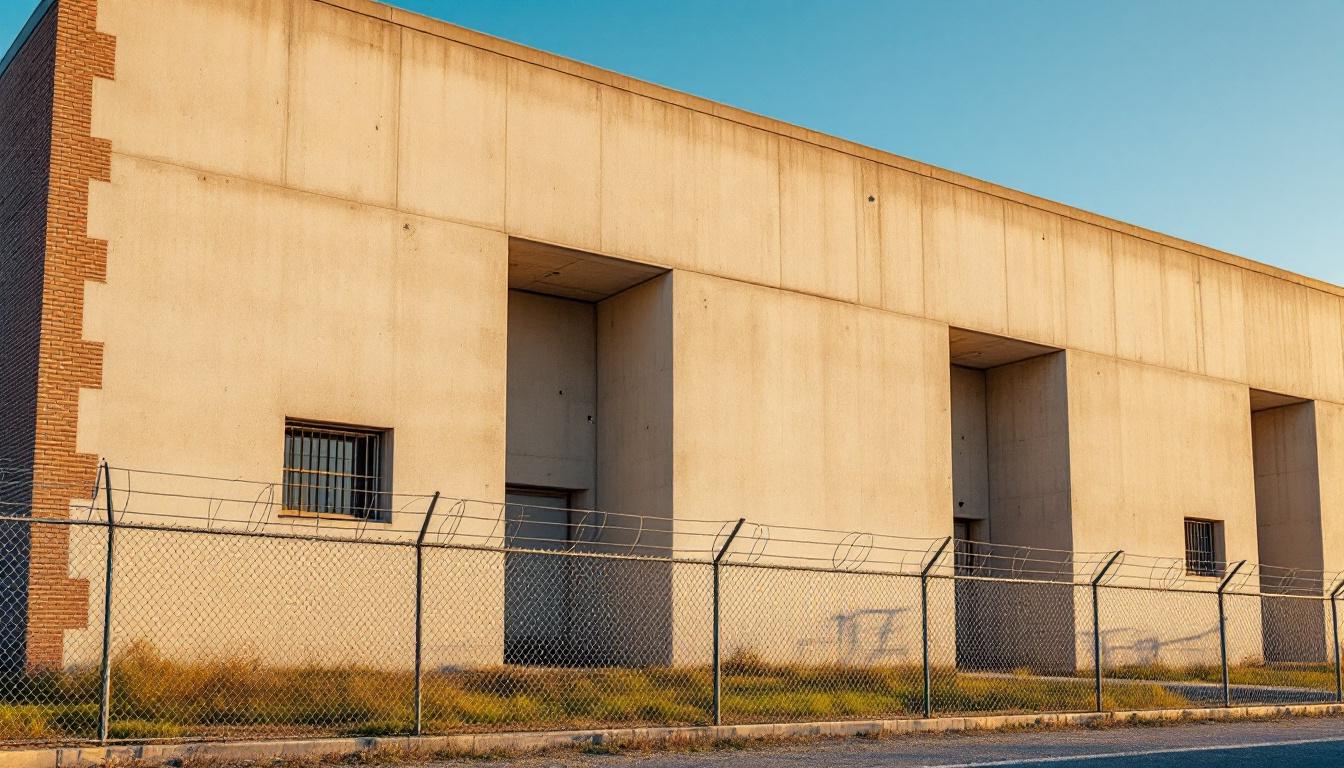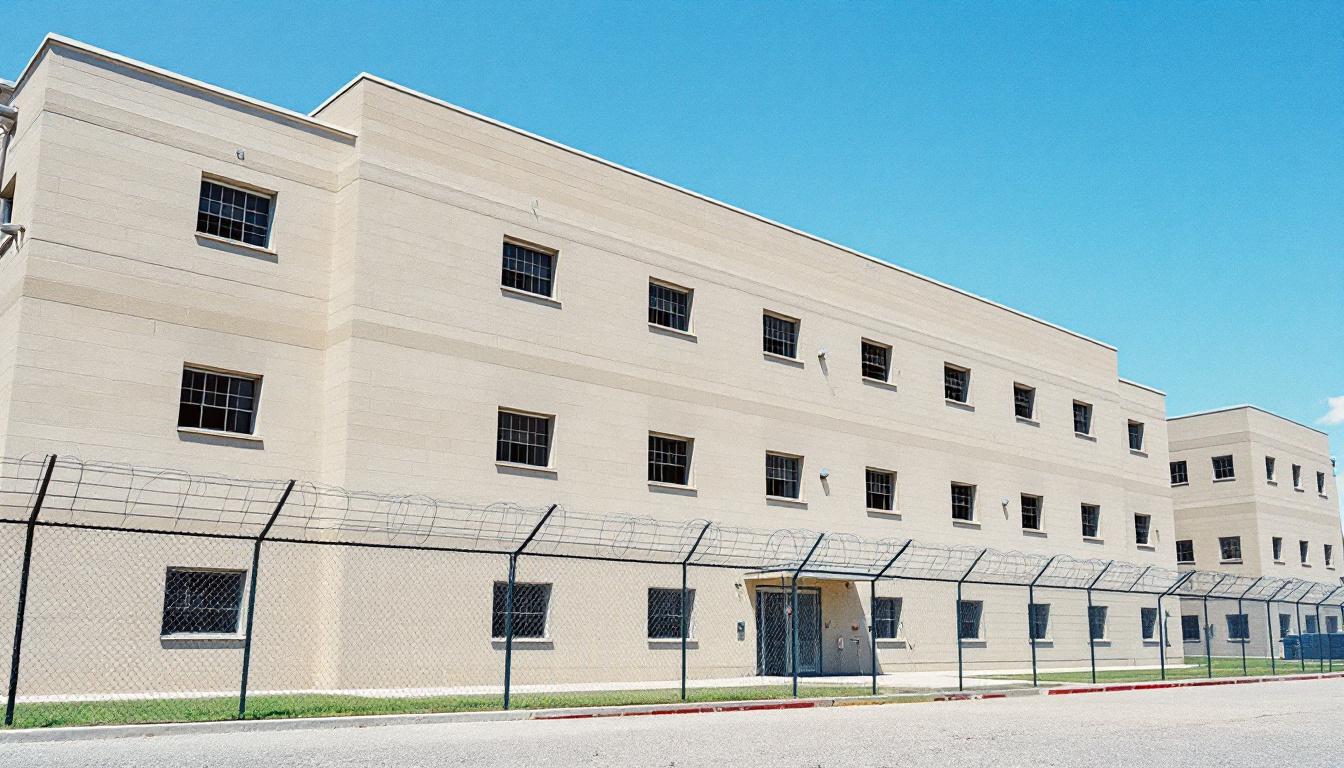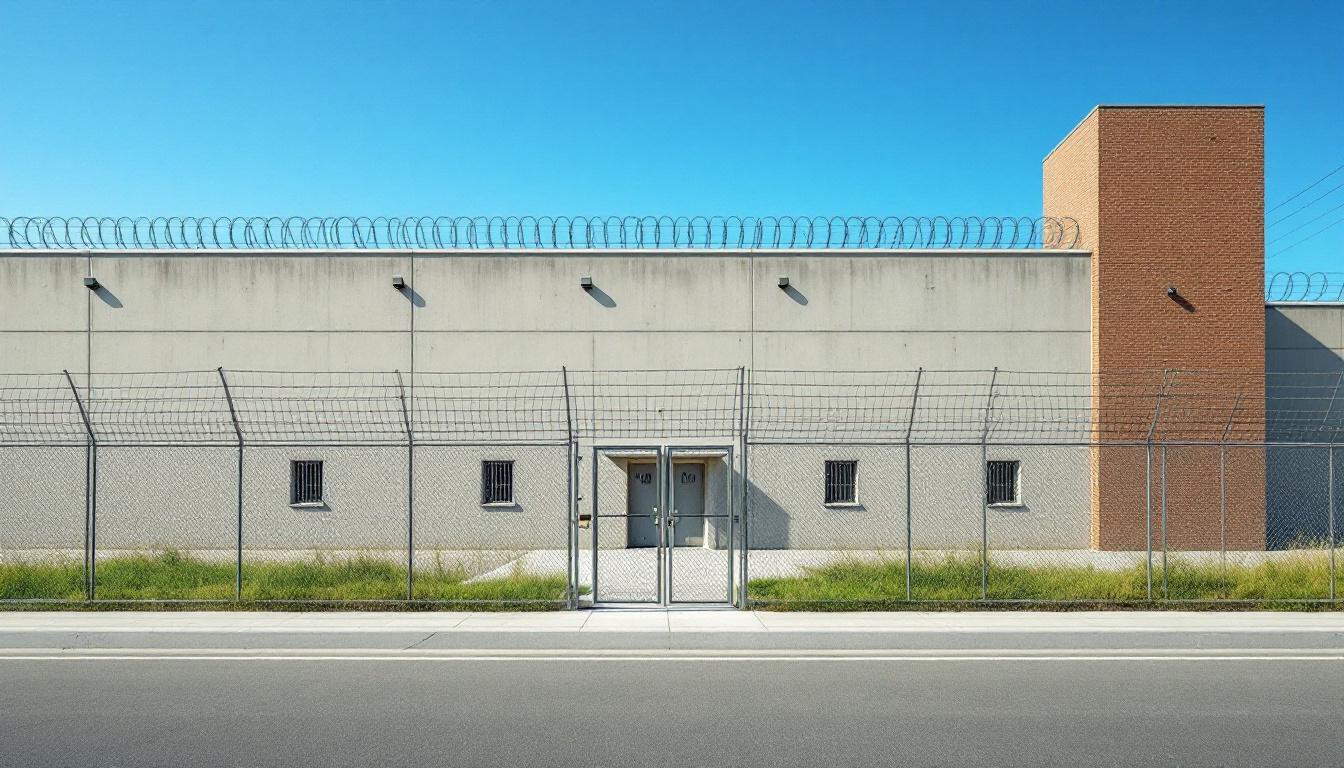
Quick Navigation
How to contact an inmate at Billy Moore Correctional Center
This comprehensive guide will walk you through how to connect with an inmate at Billy Moore Correctional Center. Follow the steps below to find an inmate and send letters and photos:
- Search for the inmate using our search tool below
- Create your account or log in to Penmate
- Write your message (up to 6,000 characters)
- Send instantly - inmates receive printed copies daily
Find an Inmate
Search for an inmate to start communicating today
Tip: You can search by first name, last name, or inmate ID number
To contact a person at Billy Moore Correctional Center start by searching for the person on the official facility website. Perform a search by following these steps:
- Step 1: Enter their first name and last name into the search form and click "Search"
- Step 2: Locate their inmate record
- Step 3: Write down their Inmate ID and any housing information provided
Important! Be sure to enter the person's full name. Nicknames should not be used.
How to Send Messages to Inmates

You can use your phone or computer to send emails, letters, and photos to an inmate. Messages are sent electronically to inmate tablets or kiosks at the facility. If you would like to send a message, start by searching for an inmate at Billy Moore Correctional Center.
Sending Photos and Postcards

A great way to send love and support to a loved one at Billy Moore Correctional Center is to send photos and postcards. It only takes a few minutes to send photos from your phone and it makes a huge difference. You can also mail postcards with words of support and inspiration, or design your own postcard for special moments like birthdays and holidays.
Important! Be sure not to send any explicit photos or they may not be approved by the facility. You can also use a photo printing app like Penmate to make sure your photos are printed at the correct size (4x6 or 3x5) and are mailed according to the rules and regulations of Billy Moore Correctional Center.
Frequently asked questions about Billy Moore Correctional Center
-
How long does it take to deliver a message?
If you're sending an email message your letter is usually delivered within 24-48 hours. For messages sent via mail you should expect delivery within 3-7 days. All messages will need be approved by Billy Moore Correctional Center.
-
How much does it cost to send a message to Billy Moore Correctional Center?
You can send a message free using your phone or mail a message via USPS for the price of a $0.60 stamp and envelope. You can also purchase credits or e-stamps from services starting at $1.99.
-
What services can I use to contact an inmate at Billy Moore Correctional Center?
Penmate
You can use Penmate to send letters and photos to an inmate from your phone. It's an easy way to stay in touch during your loved one's incarceration. Use the inmate locator to find an inmate's location and contact information, then you can send messages within a few minutes.
Securus messaging
Securus may be another option for communicating with an inmate at Billy Moore Correctional Center. You can create a friends and family account and purchase credits to send messages. All messages will be reviewed and must be approved by the facility.
JPay
Some county jails and state prisons may support sending messages with JPay. You must register an account with the system, find your loved one, and purchase stamps to send messages. For some locations you can also attach photos.
Smart Jail Mail
You may also check if Smart Jail Mail is available at Billy Moore Correctional Center. Smart Jail Mail is operated by Smart Communications and has contracted with some state and county jails. After purchasing credits, your messages and photos are sent to the facility, printed out, and then handed out to your loved one.
-
What is the mailing address of Billy Moore Correctional Center?
Mailing address:
Billy Moore Correctional Center
8500 FM3053
Overton, TX 75684
Phone: (903) 834-6186Business hours:
- Monday: Open 24 hours
- Tuesday: Open 24 hours
- Wednesday: Open 24 hours
- Thursday: Open 24 hours
- Friday: Open 24 hours
- Saturday: Open 24 hours
- Sunday: Open 24 hours
-
What are the visiting hours at Billy Moore Correctional Center?
Visiting hours at Billy Moore Correctional Center vary by housing unit and security level. Generally, visits are scheduled on weekends and holidays, with some facilities offering weekday visits. Contact the facility directly at (903) 834-6186 or check their website for the current visiting schedule. Visits typically last 30-60 minutes and must be scheduled in advance.
-
What items are prohibited when sending mail to Billy Moore Correctional Center?
Prohibited items typically include: cash, personal checks, stamps, stickers, glitter, glue, tape, staples, paperclips, polaroid photos, musical or blank greeting cards, hardcover books, magazines with staples, and any items containing metal or electronics. Only send letters on plain white paper with blue or black ink. Photos must be printed on regular photo paper (no Polaroids). Always check with Billy Moore Correctional Center for their specific mail policies.
-
How do I send money to an inmate at Billy Moore Correctional Center?
You can send money to an inmate at Billy Moore Correctional Center through several methods: 1) Online using JPay, Access Corrections, or the facility's approved vendor, 2) Money orders mailed directly to the facility with the inmate's name and ID number, 3) Kiosks located in the facility lobby, or 4) Over the phone using a credit or debit card. Fees vary by method, typically ranging from $2.95 to $11.95 per transaction.
-
Can I schedule a video visit with an inmate at Billy Moore Correctional Center?
Many facilities now offer video visitation as an alternative to in-person visits. At Billy Moore Correctional Center, video visits may be available through services like Penmate, Securus Video Connect, GTL, or ICSolutions. Video visits typically cost $10-20 for 20-30 minutes and must be scheduled in advance. You'll need a computer or smartphone with a camera and reliable internet connection. Contact the facility for their specific video visitation policies and approved vendors.
-
What identification do I need to visit an inmate at Billy Moore Correctional Center?
All visitors must present valid government-issued photo identification such as a driver's license, state ID, passport, or military ID. Minors must be accompanied by a parent or legal guardian who can provide the minor's birth certificate. Some facilities require visitors to be on the inmate's approved visitation list, which may require a background check. Contact Billy Moore Correctional Center for specific ID requirements and visitor approval procedures.
-
How can I find out an inmate's release date?
To find an inmate's release date at Billy Moore Correctional Center, you can: 1) Use the online inmate search tool if available, 2) Call the facility's records department, 3) Contact the inmate's case manager or counselor, or 4) Have the inmate provide this information during a call or visit. For privacy reasons, some facilities only release this information to immediate family members.
Facility Overview
Contact Information
Billy Moore Correctional Center8500 FM3053
Overton, TX 75684
Phone: (903) 834-6186
Official Website
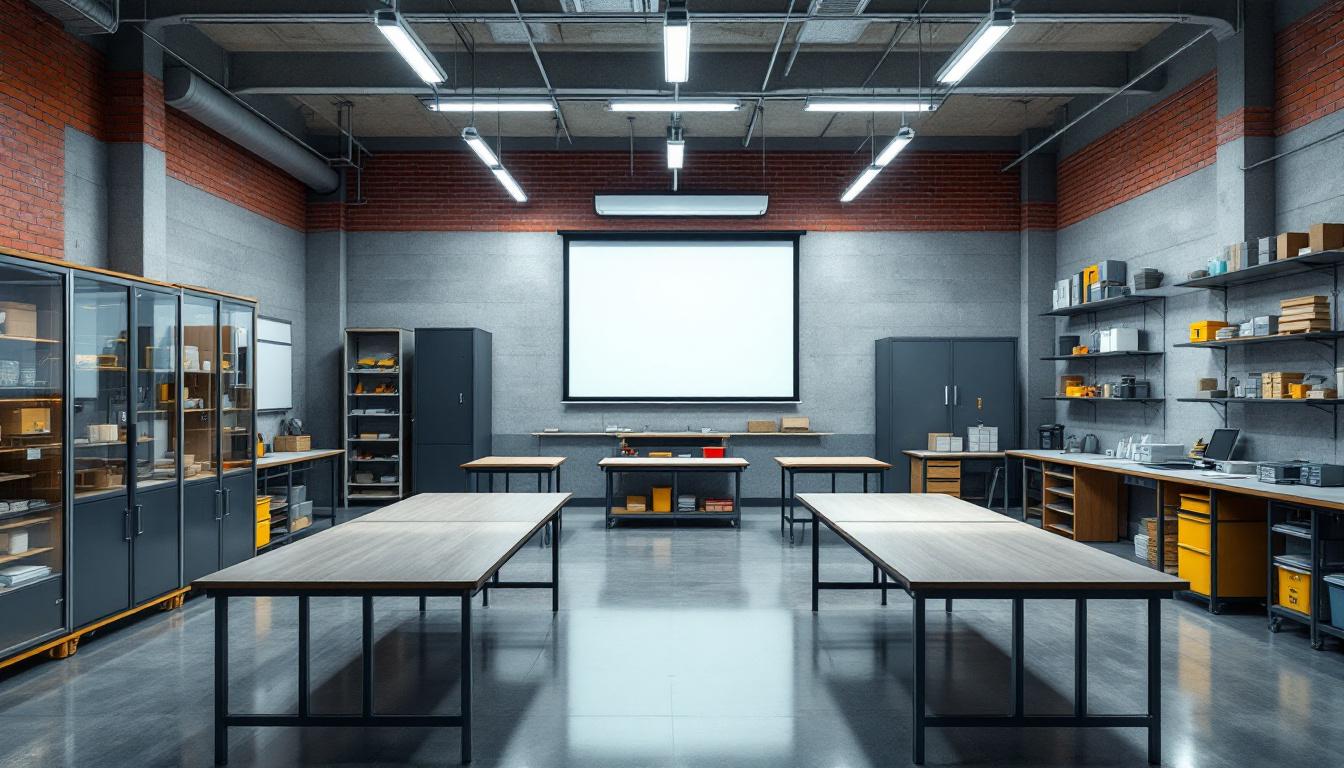
About Billy Moore Correctional Center
Correctional facilities serve as more than places of confinement—they represent critical junctures where individuals can access resources that may reshape their futures. Moore Unit, TX operates within this framework as a TX correctional facility located in Dallas, contributing to the state’s broader mission of balancing accountability with meaningful preparation for community return. The facility’s position in the Dallas area connects it to urban resources and family networks that often prove essential during the reintegration process.
Within Texas’s extensive correctional system, Moore Unit typically focuses on providing the population services that address both immediate needs and longer-term goals. Educational opportunities, vocational training programs, and counseling services generally form the foundation of daily operations, though specific offerings may vary based on current resources and individual assessments. The facility often emphasizes building practical skills that translate directly to employment opportunities, recognizing that stable work frequently serves as a cornerstone of successful community reintegration.
For families navigating the correctional system, Moore Unit’s Dallas location may offer certain advantages in terms of visitation accessibility and maintaining crucial family connections. The facility typically operates within standard Texas Department of Criminal Justice guidelines, providing structured environments where individuals can participate in programming designed to address underlying issues that may have contributed to their incarceration. While each person’s journey through the system remains comprehensive, the facility’s role centers on creating opportunities for positive change that extend beyond release dates.
Programs & Services
Through comprehensive wraparound services, the population at Moore Unit receives multifaceted support designed to address the complex challenges they face during incarceration and beyond. The facility’s approach recognizes that meaningful rehabilitation requires addressing educational deficits, developing marketable skills, and providing therapeutic interventions that tackle underlying issues contributing to criminal behavior. This holistic framework ensures that participants can access coordinated resources that build upon one another, creating a foundation for successful community reintegration.
Educational and vocational programs form the cornerstone of skill development opportunities available to the population. GED preparation courses typically provide structured academic support, enabling participants to complete their high school equivalency while incarcerated. Also, vocational training programs may supply hands-on instruction in various trades, equipping individuals with certifiable skills that enhance their employment prospects upon release. These educational initiatives often incorporate both classroom instruction and practical application, allowing participants to develop competencies that translate directly into workplace readiness.
Support services and therapeutic interventions address the broader spectrum of needs within the population. Work programs typically offer structured employment opportunities that instill discipline, responsibility, and valuable job experience while contributing to facility operations. Faith-based initiatives may provide spiritual guidance and community support, fostering personal reflection and moral development among participants. Also, dual diagnosis treatment programs often address the intersection of mental health and substance abuse issues, delivering specialized therapeutic interventions that target the root causes of criminal behavior and support long-term recovery efforts.
Daily Life & Visitation
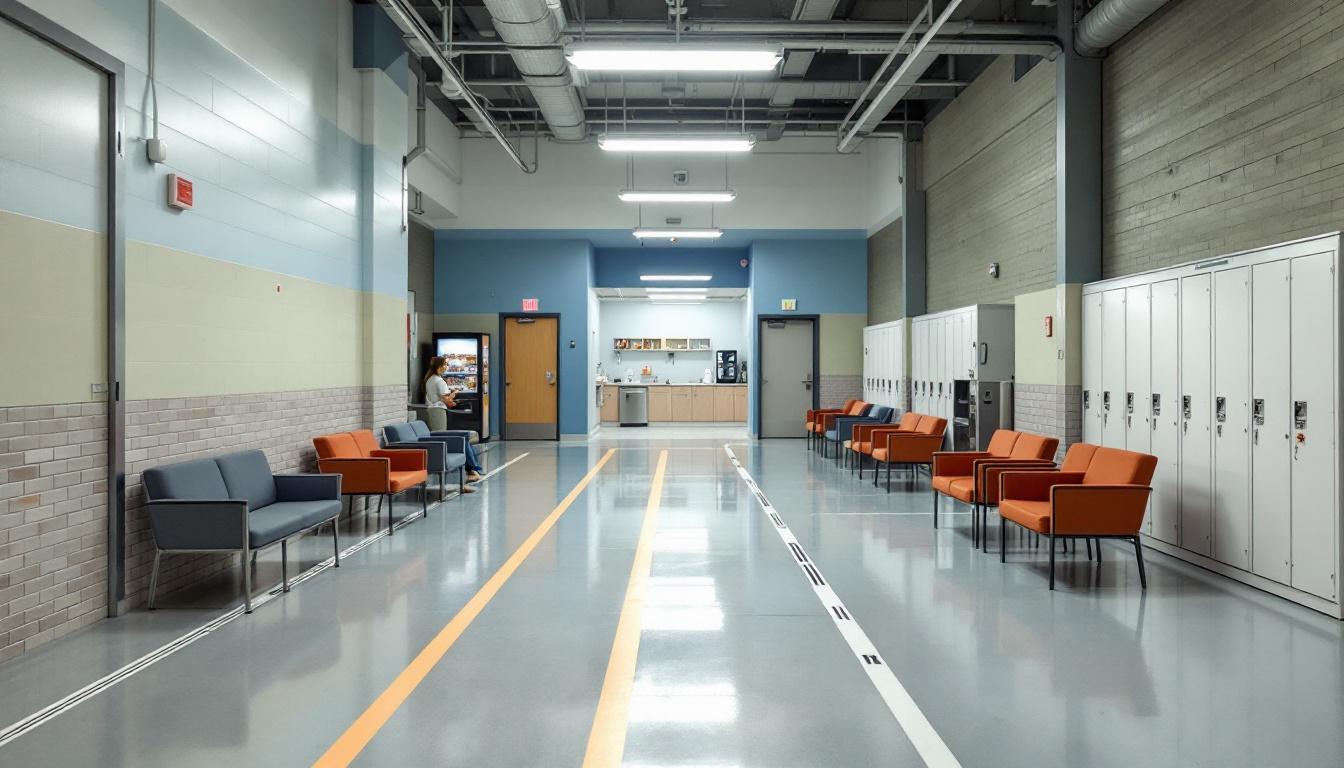
The carefully orchestrated framework of institutional protocols shapes every aspect of existence within the Moore Unit, where systematic approaches to daily management create predictable rhythms that the population navigates consistently. Today’s structured environment operates through clearly defined schedules that typically begin with early morning counts and progress through designated periods for meals, work assignments, and programming activities. The population generally follows established routines that supply stability and order, with staff supervision ensuring that security procedures and institutional guidelines are maintained throughout each day.
Living accommodations within the facility typically consist of housing units designed to accommodate multiple residents, with dormitory-style arrangements being common for much of the population. Also, individual cells may be utilized depending on classification levels and security requirements. Personal property allowances generally include basic necessities and approved items that residents can maintain in their living spaces, while commissary services usually provide opportunities to purchase additional approved goods. However, space limitations often require careful management of personal belongings, and housing assignments may change based on various institutional factors and individual circumstances.
Structured programming schedules supply the population with opportunities for education, vocational training, and rehabilitation services that typically operate during designated hours throughout the week. Recreation and exercise periods generally include outdoor activities when weather permits, along with indoor recreational options that may offer physical fitness opportunities. Also, visitation policies usually allow approved family members and friends to maintain contact through scheduled visits, while telephone and correspondence privileges typically provide additional communication options. Work assignments within the facility often include maintenance duties, food service positions, and other institutional support roles that help maintain daily operations while providing the population with structured activities and potential skill development opportunities.
Ready to Connect?
Start communicating with your loved one today
Search for an Inmate
